Emmanuel Macron: The question remains over whether he’s a friend or foe
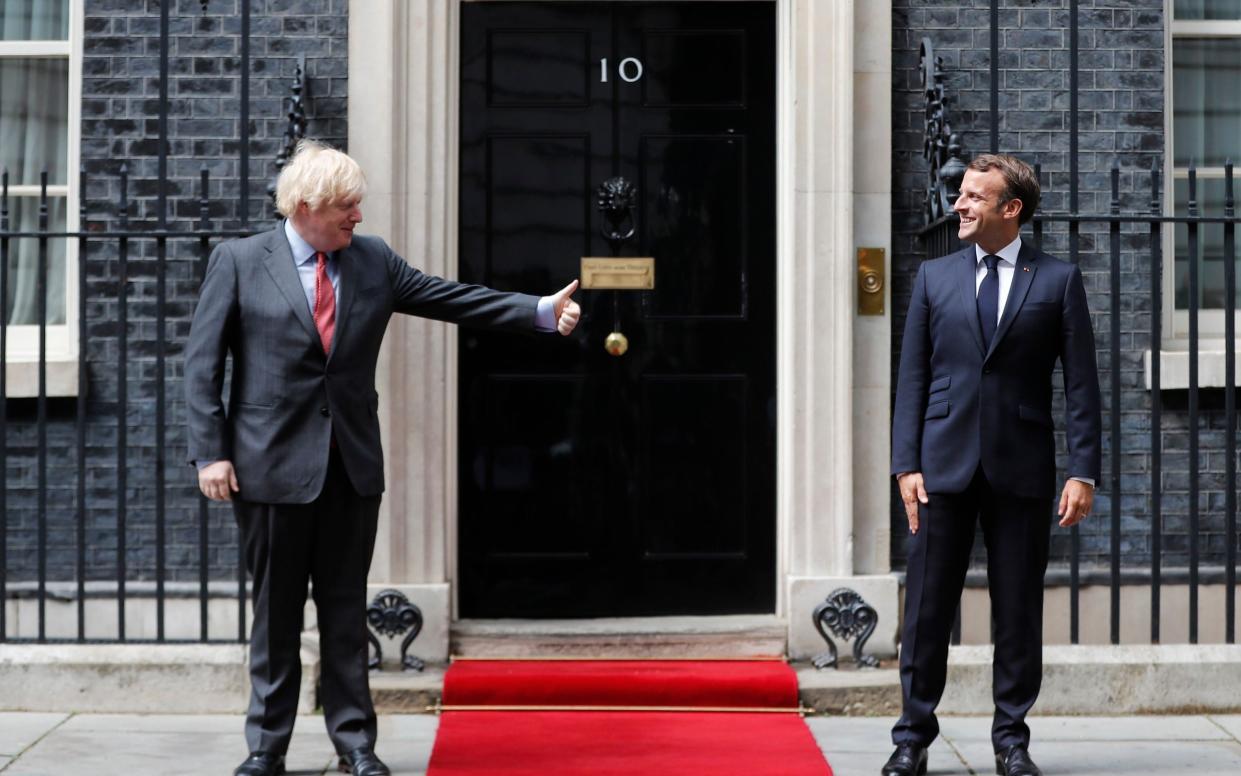
- Oops!Something went wrong.Please try again later.
- Oops!Something went wrong.Please try again later.
- Oops!Something went wrong.Please try again later.
- Oops!Something went wrong.Please try again later.
When Emmanuel Macron was comfortably re-elected French president for another five years in April, he took the time to speak to the leaders of America, Germany and even Russia’s Vladimir Putin.
Last on the list was the leader of his closest allies geographically - the UK. Two days later after Mr Macron’s victory, Boris Johnson was still waiting for a chat with “Manu”, as the 44-year-old centrist is known to friends, with Downing Street playing it down as a timing issue among “exceptionally busy” leaders.
But the snub was unquestionable and came in the wake of arguably the worst nosedive in UK-France relations in modern history or even “since Waterloo”, according to one former French ambassador to the UK.
Those relations are hardly likely to improve following the remarks by Liz Truss - Mr Johnson’s probable successor - that the “jury is out” when asked if Mr Macron were “friend or foe” during a televised leadership hustings with Conservative members.
On Friday, Ms Truss’s team were trying to downplay the comments, insisting they were intended to be “jokey” and “in jest”.
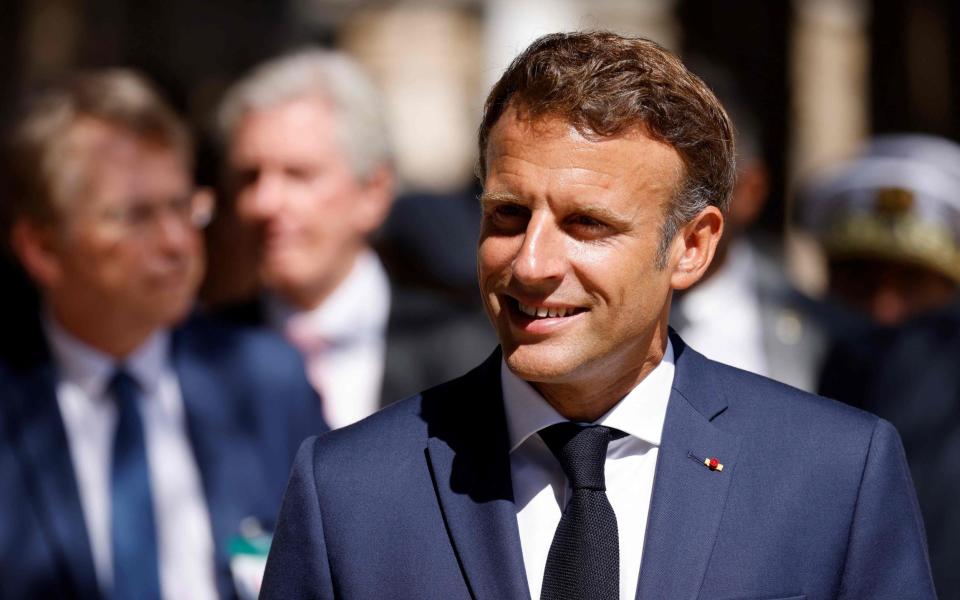
Mr Macron added: “The United Kingdom is a friend of France, and you know we live in a complicated world, there are more and more liberals, authoritarian democracies, so there is a sense of imbalance.”
But he warned: “If the French and British are not capable of saying whether we are friends or enemies - the term is not neutral - we are going to have a problem.”
For his part Mr Johnson, the soon to be ex-Prime Minister, took refuge in cod French to defuse any offence. “Emmanuel Macron est un tres bon buddy de notre pays,” he said.
“I think the relations between the UK and France are of huge importance. They have been very good for a long time, ever since the Napoleonic era basically, and I think we should celebrate that.
“As for Emmanuel, I’ve had very good relations with him and I can tell you something. He’s a great, great fan of our country.”
The tapestry has unravelled
It had all started so warmly in Mr Macron’s first term when he pledged to loan the Bayeux tapestry to the nation on the receiving end of the Norman Conquest in 2018 - a first in 950 years even if the symbolism was double-edged given it depicts England’s King Harold II getting a Norman arrow in the eye.
But as ever, reality has a habit of unravelling even the grandest of gestures in the name of Entente Cordiale.
After closer examination, French experts ruled that the hallowed yarn of the 1066 Battle of Hastings risked disintegrating en route to the UK after finding 24,200 stains and 10,000 holes in need of urgent repair and restoration.
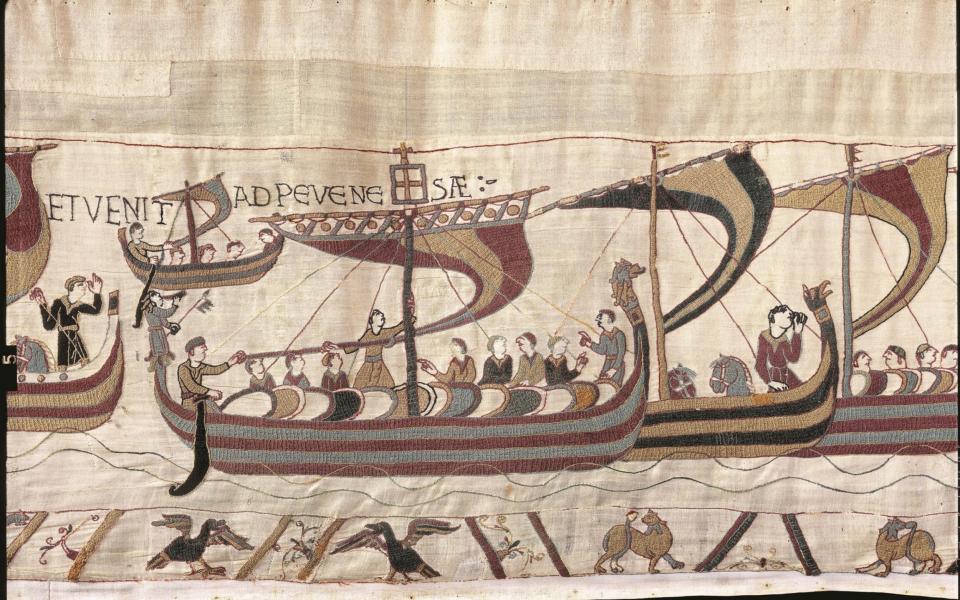
The fragility of the tapestry spoke volumes about the tenuous nature of cross-Channel ties.
Indeed local officials were loath to see it leave French shores at all, and then said it could only do so if Britain footed the repair bill. Today, the tapestry remains firmly in France.
Brexit - the original sin
In a similar spirit, that same year Mr Johnson, who was then the foreign secretary, suggested building a bridge to France and tweeted out a thumbs-up selfie with Mr Macron.
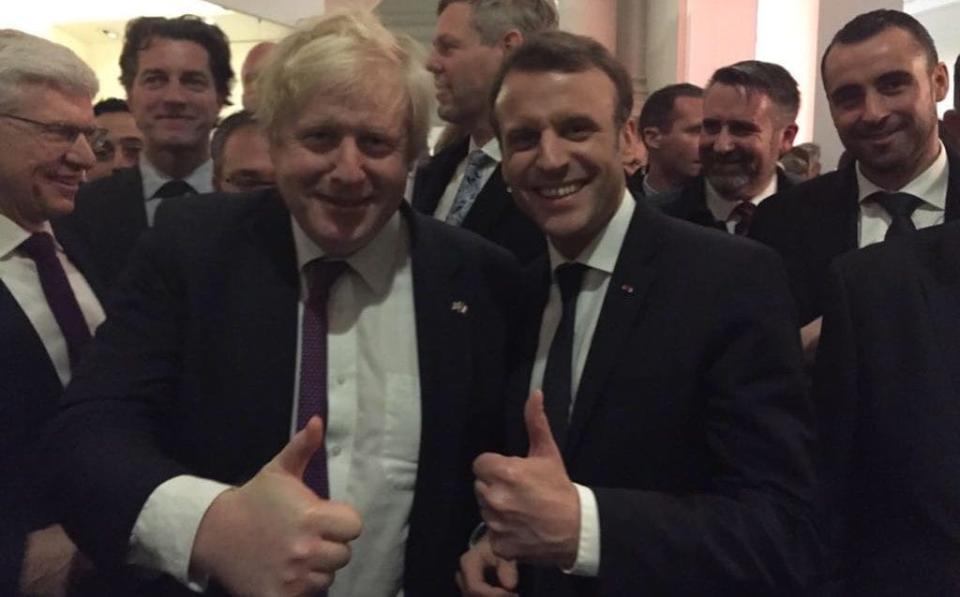
Mr Johnson’s plans for the bridge - like so many of his other “grand projets” including an airport in the Thames estuary and a fixed link between Britain and Northern Ireland - came to nothing.
In truth the attempts by London and Paris to find ideas they agree on has always been undermined by the original sin in Mr Macron’s eyes: Brexit.
Even before his 2017 election, the French president had made his position on Britain’s decision to leave the European Union abundantly clear.
“Those who were responsible for Brexit, who said everything is possible and will be wonderful, have all scarpered. They’ve gone into hiding,” he said in March that year.
“Other Conservatives are going to have to deal with it and by the way we’re going to have to be incredibly tough with them.”
He has stuck to that line ever since and was repeatedly accused of whipping up anti-British sentiment in Brexit negotiations as part of a wider drive to re-align the EU political landscape into a binary fight between “pro and anti-Europeans”, “progressives and nationalists” ahead of last April’s presidential election.
A shift in the relationship
Whitehall sources have suggested the turning point in the Macron-Johnson relationship came over the row during the Covid-19 pandemic when tensions rose between Paris and London.
Mr Macron’s threat to close the French border to British travellers if Mr Johnson did not toughen up coronavirus restrictions was met with fury in Downing Street.
And relations further soured when Mr Macron tried to undermine public confidence in the Oxford University/AstraZeneca vaccine and talked up an export ban on UK-destined vaccines produced on the continent.
Mr Macron refused to apologise or admit that he had misunderstood the science.
Troubled waters
The waters between Britain and France have become a focus for tension between the two countries since the Brexit vote.
Last year an acrimonious row over the attribution of French fishing licences in UK waters in which the Macron government threatened to cut off electricity to Jersey.

Gallic fishermen briefly blockaded its main port, prompting Mr Johnson to dispatch two Royal Navy boats to the scene. France followed suit. The row was eventually sorted out with a new deal last December.
Tensions had further built over who was to blame for the deaths of 27 migrants last November. Priti Patel, the Home Secretary, has accused the French of not doing enough to prevent the crossings.
Added to that the Australia-UK-US (Aukus) submarine deal signed in September last year caused fury in the Élysée Palace as it led to the cancellation of a £47 billion order for French subs.
French newspaper Le Monde described the scathing Gallic reaction as “a way of expressing the disdain perceptible in the French capital eight months after Brexit towards the government of Boris Johnson, considered the ‘stowaway’ of the new alliance”.
In case the message was not clear, Clément Beaune, the then Europe minister, said: “Our British friends explained to us they were leaving the EU to create Global Britain. We can see that this is a return into the American lap and a form of accepted vassalisation.”
Mr Johnson was having none of it, insisting on a visit to Washtington a week after the announcement that France should “prenez un grip and donnez-moi un break”, amid the escalating diplomatic row.
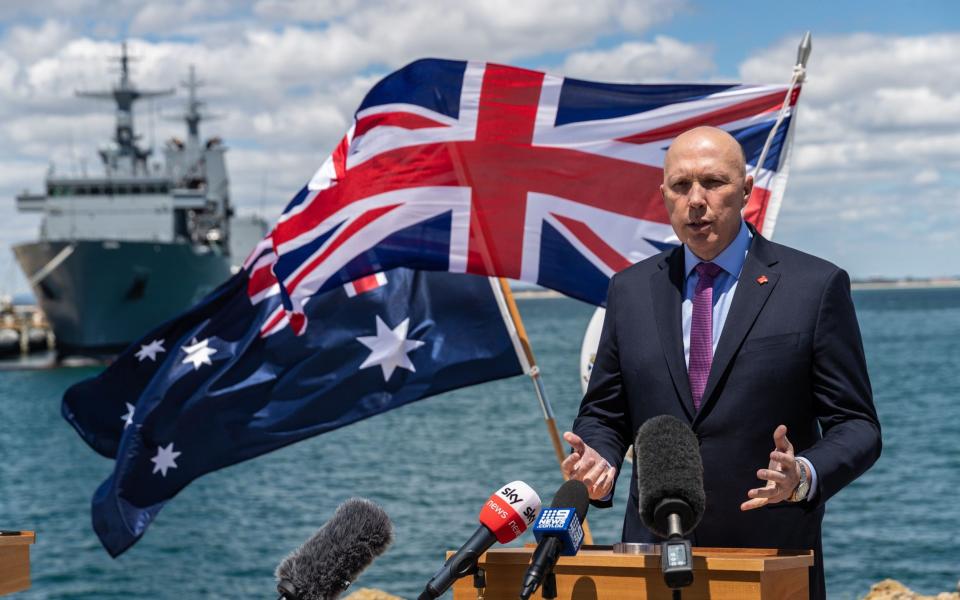
The spat put a serious spanner in defence cooperation between the two allies, whose deep military ties set in stone under the Lancaster House agreements have generally remained unaffected by such flare-ups.
France’s foreign minister called it a “stab in the back” and recalled its ambassadors to the United States and Australia. Although tellingly despite the war of words, France chose not to recall its ambassador to the UK.
Macron calls Boris Johnson a ‘clown’
Matters had barely improved two months later in December when it emerged that Mr Macron had privately branded Boris Johnson a “clown” in charge of a “circus”.
Mr Macron had even reportedly claimed to aides that the UK Prime Minister admitted to him he has to “cater to his public opinion” by creating phoney wars against the French to mask difficulties supposedly caused by Brexit.
Tensions were further inflamed earlier this year when Mr Macron attempted shuttle diplomacy with Mr Putin ahead of Russia’s invasion of Ukraine.
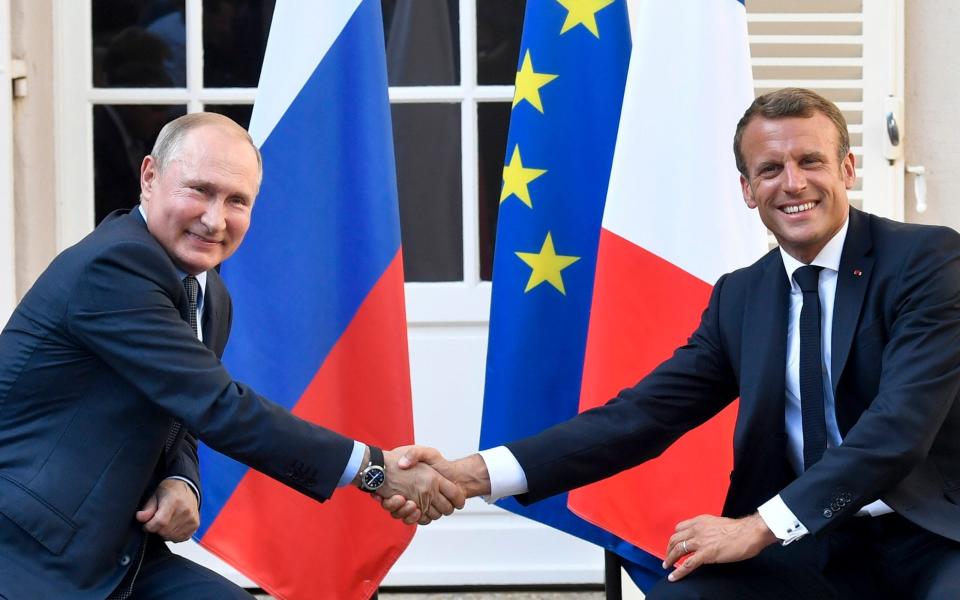
British officials were left hoping that Mr Macron’s re-election in May was meant to reboot the relationship.
Indeed after his election win Mr Macron appeared to throw an olive branch to the UK by suggesting it could become a member of a new type of “political European community” - a kind of “shadow EU” that would allow countries outside the European Union, including Ukraine and Britain, to join the “European core values”.
The Elysée Palace insisted that Mr Johnson had expressed “lots of enthusiasm” for Mr Macron’s idea during discussions with the French president on the sidelines of the G7 summit in Bavaria in June.
Yet Ms Truss later denied that the UK had ever been on board. “That is not true. I don’t know the exact words that President Macron has used, but we have not agreed to that.”
Asked whether she bought into “his political and economic community”, she replied: “No.”
A relationship reboot with new PM
The first meeting on Mr Macron’s initiative due to sponsor co-operation between EU and non-members is in Prague on October 6. The UK is invited.
Before that meeting in October, Ms Truss is highly likely to have been elected Conservative leader.
On Friday, aides to Ms Truss were stressing the importance of Britain’s dealings with France. “It is an important relationship that she will recognise. They are important friends and allies,” said one.
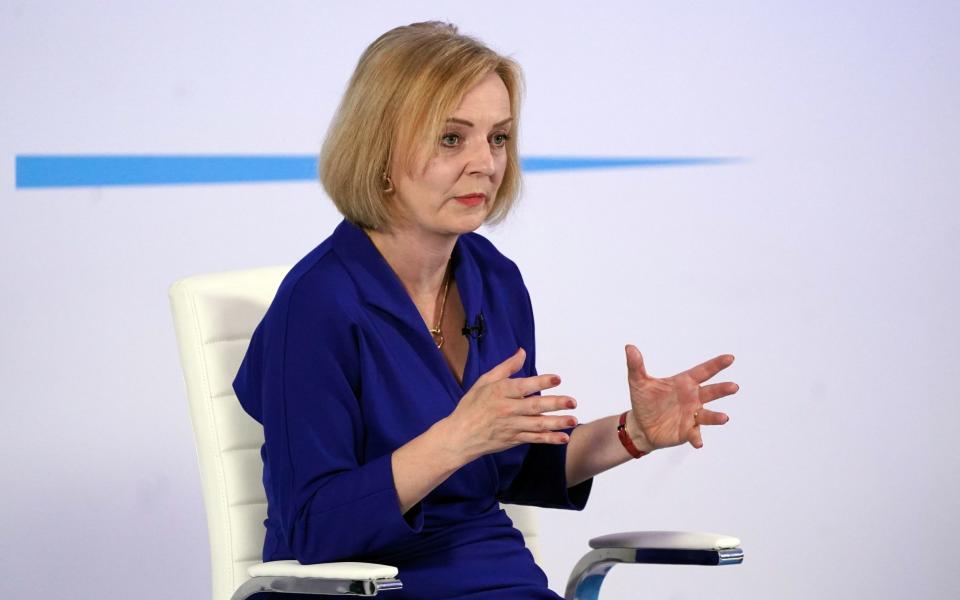
On Friday, a government minister close to Ms Truss made clear that as PM she will be no pushover with the French. One told The Telegraph: “Her remarks about Macron were an aside. She wants to work with the French.
“When she said ‘the jury’s out’ that equally means we are going to see what we can do. The party knows that she is also not someone who is going to roll over.”
Once Ms Truss is given the keys to Number 10, the stopwatch will start again when the two British French leaders have their first conversation.
The difference now is that this time it will be up to Ms Truss to pick up the phone. How long she keeps Mr Macron waiting will speak volumes for “le special relationship”.

